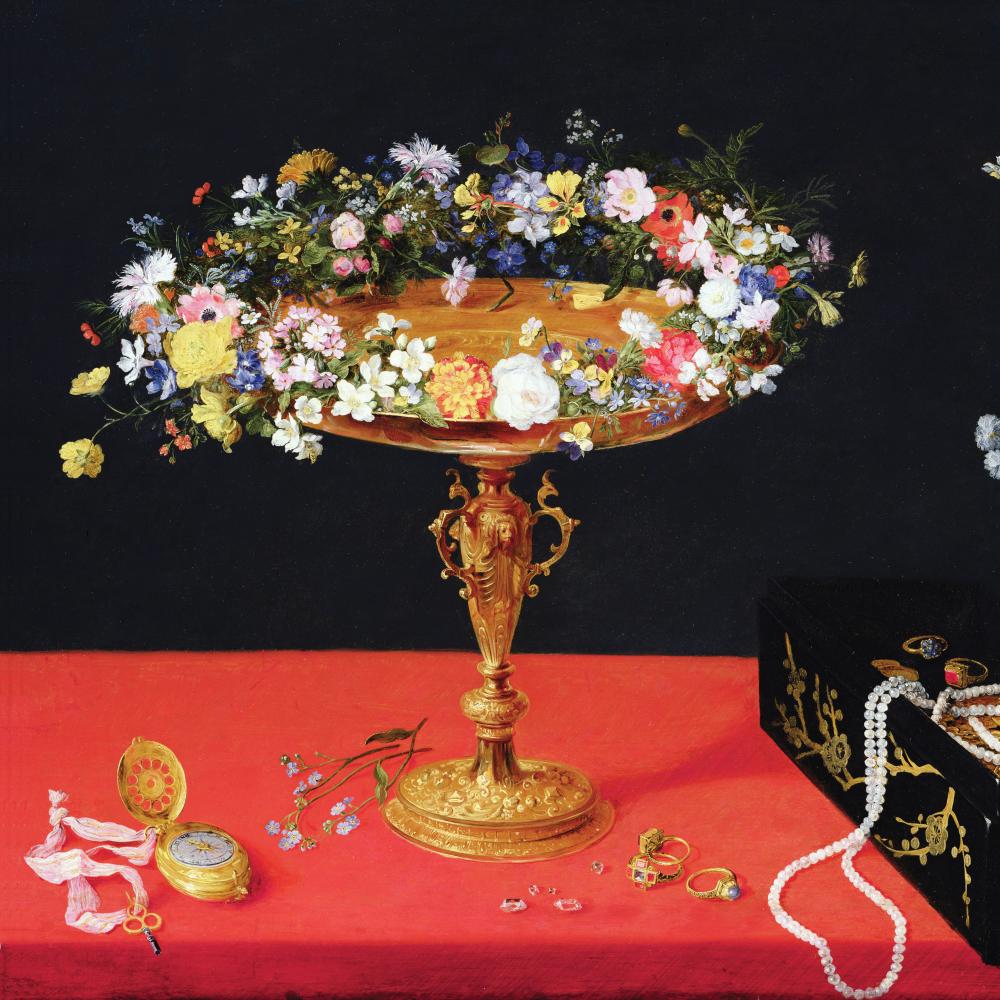From ancient times to the present, philosophers, religious teachers, and moralists of every stripe have praised frugality and simple living. Champions of frugal simplicity include Lao Tze, Buddha, Socrates, Plato, Epicurus, Jesus, Seneca, Epictetus, Plutarch, Boethius, Muhammad, More, Montaigne, Spinoza, Franklin, Rousseau, Thoreau, Nietzsche, Tolstoy, and Gandhi. These sages offer an impressive battery of arguments in support of their views, the most important of which can be classified as either religious (simple living brings you closer to God), moral (it fosters virtue), or prudential (it will make you happier). As one would expect, they also tend to be highly critical of luxury and extravagance.
This philosophical consensus down through the ages is rather surprising. After all, it isn’t obvious that the best life is one of frugal simplicity. Indeed, if people’s behavior is the best indicator of what they believe, millions appear to reject this idea. In fact, though, if one looks more closely, one can find intellectual countercurrents, also ancient, but typically less moralistic, that constitute an alternative tradition that rests on more worldly values, and admires, applauds, or at least gives conditional approval to superfluities and prodigality.
This tradition has deep roots and can be found in some of the oldest texts. Homer, for instance, frequently offers detailed and admiring descriptions of fabulous luxury. This passage from Book IV of the Odyssey is fairly typical:
Helen emerged from her scented, lofty chamber—
striking as Artemis with her golden shafts—
and a train of women followed . . .
Adreste drew up her carved reclining chair,
Alcippe brought a carpet of soft-piled fleece,
Phylo carried her silver basket given by Alcandre,
King Polybus’ wife, who made his home in Egyptian Thebes
where the houses overflow with the greatest troves of treasure.
The king gave Menelaus a pair of bathing tubs in silver,
two tripods, ten bars of gold, and apart from these
his wife presented Helen her own precious gifts:
a golden spindle, a basket that ran on casters,
solid silver polished off with rims of gold.
One finds the same enthusiastic tone in the Bible’s description of Solomon’s wealth:
And king Solomon made two hundred targets of beaten gold: six hundred shekels of gold went to one target. And he made three hundred shields of beaten gold; three pound of gold went to one shield: and the king put them in the house of the forest of Lebanon. Moreover the king made a great throne of ivory, and overlaid it with the best gold. The throne had six steps, and the top of the throne was round behind: and there were stays on either side on the place of the seat, and two lions stood beside the stays. And twelve lions stood there on the one side and on the other upon the six steps: there was not the like made in any kingdom. And all king Solomon’s drinking vessels were of gold, and all the vessels of the house of the forest of Lebanon were of pure gold; none were of silver: it was nothing accounted of in the days of Solomon.
(Kings I, 10, 16–21)
Marco Polo’s awestruck description of the palace of Kublai Kahn at Xanadu belongs to the same genre. These accounts certainly express aesthetic appreciation. But it is not just beauty that is being praised; there is also unabashed admiration for grandeur, size, quantity, and costliness. A twenty-first-century Homer singing about the exploits of stockbrokers and bankers would not fail to mention their Rolex watches.
One might think that the ordinary people ruled by Menelaus, Solomon, or Kublai Kahn, many of whom would be poor peasants and farmers scratching out a meager existence, might be irked by their rulers’ extravagance. This can occur—witness the French Revolution. But ordinary people may also take pride in the wealth and prodigality of their princes, enjoying a degree of reflected glory. The splendor of Versailles, after all, expresses the greatness of the French king and thereby of France. This way of thinking persists today. There are shocking levels of poverty in contemporary America; but few suggest that, in order to save money, visiting heads of state be taken to a greasy spoon rather than feted at a lavish state dinner. People prefer to be represented by and associated with the splendid rather than the tawdry.
Works of costly splendor can, of course, be found beyond royal palaces. Cathedrals and temples have also often been built on an extravagant scale and at extraordinary expense. The massive cost of building and ornamenting St. Peter’s Basilica in Rome was a major reason that the Catholic Church needed to raise money through the sale of indulgences, a practice that helped precipitate the Reformation. The official justification for extravagance in such cases was that it served to glorify God. In modern times, though, we are more inclined to justify expenditures of that order on galleries, concert halls, and museums, or on space stations and particle colliders—further evidence, if any were needed, of the essentially secular character of modernity.
It is interesting to note how the admiration for luxury and extravagance changes its character over time, especially in the eighteenth and nineteenth centuries, when the social structure of society altered so dramatically. In the novels of Jane Austen, for instance, there are plenty of passages that lovingly describe some handsome house and its surrounding estates. But what impresses here is not size, quantity, or cost. Indeed, to mention cost would be rather vulgar. The emphasis is almost exclusively aesthetic. What matters is the beauty and charm of a building, the agreeableness of its rooms, and, very importantly, how well it fits into its surroundings. The subtext here is not applause for wealth and power but the legitimation of privilege grounded in land ownership and history.
In contemporary culture we can still observe these contrasting attitudes toward the uses of wealth. Some people love bling, glitz, mansions, sports cars, and other forms of ostentatious display. Others prefer prettily restored farmhouses filled with antique furniture—still expensive, but conveying the owner’s good taste and traditional values rather than providing a crass announcement of one’s bank balance.
But what about the philosophers? Are there philosophers who praise or advocate luxury and extravagance? They are certainly not thick on the ground; but there are a few who, to some degree and in certain respects, stand apart from the general consensus in favor of frugal simplicity.
Aristippus (c. 435–c. 356 BCE) was a follower of Socrates, but he emphatically rejects Socrates’ conception of the good life. In his view, what makes life worth living is pleasure, so we should pursue it unconstrained by social conventions (including moral precepts), and we should value whatever helps us experience it. Luxuries, in this view, are obviously good and should be enjoyed to the full. According to some accounts, one way Aristippus secured luxuries was to flatter patrons like Dionysius I, the King of Syracuse, even dressing up like a woman and dancing for his entertainment when asked. From the standpoint of Socrates and Plato, this is the shameful behavior of a man enslaved by his appetites. But Aristippus believed that his clearheaded devotion to pleasure, and his indifference to convention or moral constraints, made him a free man.
One saying attributed to Aristippus constitutes what is perhaps the first recorded argument in defense of extravagance. “If extravagance were a fault,” he says, “it would not have a place in the festivals of the gods.” The form of this argument would be familiar to his audience. It is strikingly similar to a line attributed to Sappho: “If death were good, the gods would have chosen death.” Both arguments appeal to traditional ideas, derived primarily from Homer, about the deathless gods enjoying an existence rich in pleasure. The new moralism of Socrates and Plato necessarily involved a critique of these ideas—even the idea that death is an evil.
Epicurus also considers pleasure to be the chief good in life, but since he deems simple pleasures such as friendship and conversation to be sufficient for happiness, he has no great interest in luxuries. And, like Socrates, he believes it is impossible to be happy if one lacks moral virtue. This view is endorsed by Plato and Aristotle. But whereas Plato is deeply distrustful of wealth, luxury, and extravagance (all of which, he believes, tend to corrupt the soul), Aristotle is less suspicious.
Here, as elsewhere, Aristotle’s views are closer than Plato’s to popular opinion (aka common sense), both in his time and today. Although critical of anyone who attaches too much importance to wealth, he frankly admits that wealth is useful in helping us live well; what matters is whether one uses it wisely. The virtue relating to the use of wealth is liberality, or, as we more commonly say today, generosity. Like other virtues, liberality lies between two extremes. A person deficient in liberality is ungenerous; one excessively generous is wasteful.
According to Aristotle, these vices are not equally bad: A lack of generosity is worse than wastefulness. One reason for this is that stinginess is (in his view) incurable, whereas wastefulness is typically cured either by maturity or by the wastrel running out of means to waste. A more important reason, though, is that ungenerosity bespeaks a base and selfish character, whereas people who are wasteful not through intemperance but simply because they are too generous may be foolish, but they are not vicious or ignoble. Moreover, while the tightfisted type benefits no one, people who are excessively generous at least benefit others, even while possibly ruining themselves.
Plutarch’s life of Cato the Elder illustrates this thinking very well. Cato was renowned in his day for his simple lifestyle, and Plutarch admires his avoidance of luxury, his physical hardiness, and his preference for coarse clothes and plain fare. But he is disgusted by the way Cato treated his slaves, driving them mercilessly like beasts of burden, and then, to save money, simply discarding them when they were too old to work. Here, then, is an important criticism of frugal zealotry, and a reason to be indulgent with respect to at least some kinds of extravagance. Excessive frugality can indicate an unhealthy concern for money, and lead one to treat others badly, while excessive generosity toward others is surely one of the more forgivable personal failings.
There is a kind of extravagance, though, that Aristotle praises as a positive virtue—the virtue of magnificence. This is a virtue that can be practiced only by the privileged few who are sufficiently wealthy. It involves lavish spending either on public goods, such as a temple, or on private projects, such as a wedding, or the furnishing of one’s house. One might also extend the notion to include large-scale acts of philanthropy aimed at helping people in need. Like any other virtue, it lies between two extremes and is kept there only if accompanied by wisdom. Individuals who spend excessively just to show off their wealth—the Rolex watch brigade—are guilty of vulgarity. Those who through penny-pinching fail to accomplish something fine that is within their reach are guilty of niggardliness. And anyone who attempts a display of magnificence that is really beyond their means is an idiot! But for those who really can afford it, lavish spending done with taste and a sense of responsibility on worthwhile projects can be considered virtuous. Unlike most of the other virtues that Aristotle catalogs, however, magnificence is not an essential component of the good life. Those who are in a position to practice it are certainly fortunate; but to be incapable of magnificence is not a misfortune, like sickness or friendlessness, since happiness does not require it.
Notwithstanding Aristotle’s remarks on magnificence, most of the philosophers of ancient Greece and Rome associated luxury and extravagance with softness, avarice, greed, corruptibility, and vulgarity: in short, with moral decadence. Once Christianity became the dominant religious framework within the West, the same vices were condemned as contrary to Jesus’ teaching. So, although hypocrisy may sometimes have been rampant, the official positon of most Christian theologians, philosophers, and moralists throughout the Middle Ages was to endorse values such as poverty, humility, prudence, and temperance.
A sea change occurred, however, in the eighteenth century, brought about by various developments that followed on the heels of the Renaissance and the Reformation. The end of feudalism, the discovery of the Americas and their riches, the revolutions in science and technology, the advent of capitalism, and the decline in the authority of religion, all required and produced new ways of thinking. Among these was a new perspective on wealth and worldly desires.
One of the most influential texts to advance this new perspective was Bernard Mandeville’s The Fable of the Bees, which included his poem “The Grumbling Hive.” Through a witty and provocative account of a beehive, Mandeville argues that many traits condemned by moralists as vices in fact promote important benefits to society as a whole. For instance:
The Root of Evil, Avarice,
That damn’d ill-natur’d baneful Vice,
Was Slave to Prodigality,
That noble Sin; whilst Luxury
Employed a Million of the Poor,
And odious Pride a Million more . . .
Thus Vice nurs’d Ingenuity,
Which joyn’d with time; and Industry
Had carry’d Life’s Conveniences,
Its real Pleasures, Comforts, Ease,
To such a Height, the very Poor
Liv’d better than the Rich before.
In Mandeville’s fable, the beehive flourishes so long as it is full of vice. But eventually Jove, responding to the complaints of some of the bees, purges it of moral vices, and this disastrously weakens the hive, since the bees, not wishing to compete with one another, are no longer motivated to work.
Prior to Mandeville, the standard view was that individual moral virtue and the good of society were closely connected. Good people will build a strong and healthy society; a flourishing society will produce good citizens. This is the view paradigmatically set out in Plato’s Republic and presupposed by most people ever since. A radical aspect of Mandeville’s argument is the way it decouples individual virtue and societal well-being.
Mandeville profoundly influenced early economists like Adam Smith. In The Theory of Moral Sentiments, Smith endorses the idea that when individuals single-mindedly pursue “the gratification of their own vain and insatiable desires,” they unintentionally, as if “led by an invisible hand,” benefit society as a whole. Smith’s friend, David Hume, thinking along similar lines, criticizes “men of severe morals [who] blame even the most innocent luxury,” and offers an early defense of consumerism:
The increase and consumption of all the commodities which serve to the ornament and pleasure of life, are advantages to society. . . . In a nation where there is no demand for such superfluities, men sink into indolence, lose all enjoyment of life, and are useless to the public.
Similar sentiments are expressed by many others during this period. Samuel Johnson, for instance, a fervent Christian who was fiercely hostile to free thinkers like Hume, nevertheless joined in the new defense of luxury:
Now the truth is, that luxury produces much good. . . . A man gives half a guinea for a dish of green peas. How much gardening does this occasion? How many labourers must the competition to have such things early in the market keep in employment? You will hear it said very gravely, ‘Why was not the half-guinea, thus spent in luxury, given to the poor? To how many might it have afforded a good meal?’ Alas! has it not gone to the industrious poor, whom it is better to support than the idle poor?
As a Christian, Johnson is not entirely comfortable with his own position. Elsewhere he admits that “there may be more virtue in giving it [i.e., money] immediately in charity, than in spending it in luxury.” Voltaire, however, has fewer moral scruples of this sort. Like Hume, who has no use for what he derisively labels the “monkish virtues,” Voltaire sees the desire for and the enjoyment of so-called luxuries as integral to what we call civilization. And he ridicules the reactionary moralists who see every innovation as sinful:
When scissors, which surely do not date from late antiquity, were invented, what wasn’t said against the first people who clipped their nails, and who cut some of the hair that fell down over their nose? They were doubtless called dandies and squanderers, who bought an expensive instrument of vanity to mar the work of the Creator. . . . It was an insult to Divinity!
Needless to say, in spite of all this, the longstanding tradition of philosophers criticizing luxury and praising the simple life remained alive and well. Rousseau viewed the desire for superfluities that economic progress encourages as a corruption of our natural, and morally better, way of being. Thoreau, in his experiment at Walden, sought to demonstrate his proposition that “a man is rich in proportion to the number of things which he can afford to let alone.” But since the days of Hume and Voltaire, and especially in the era of mass consumerism, it is probably fair to say that their defense of luxuries as useful, and of the desire to enjoy them as reasonable, has become a virtually invisible part of mainstream thinking. This reflects, and is promoted by, rising incomes, rising living standards (which continually convert luxuries into necessities—think flush toilets), a much greater and more affordable array of luxury items than in the past, a competitive culture, and wall-to-wall 24/7 advertising.
Today, the advocates of frugality and simplicity are more than marginal but less than mainstream. Few politicians seek to win votes by persuading us that we don’t need to increase the country’s GDP any further, and that we would all be happier if we reduced our spending and embraced a simpler lifestyle. At the same time, critics of consumerism are legion, and there are countless books, periodicals, websites, and organizations seeking to promote the values and practices of simple living.
In a dynamic society, intellectual and cultural trends are in constant motion. Sometimes old ideas come to the fore again in response to changing circumstances. So although, since the eighteenth century, the champions of luxury consumption and the continual economic growth it fuels have been ascendant, their view is not certain to prevail indefinitely. One venerable objection to people spending extravagantly on ostentatious luxuries and superfluities is that this sort of behavior can exacerbate socioeconomic inequalities and fuel popular resentment against the wealthy. As economic inequalities in countries like the United States and the United Kingdom have widened in recent years, this argument has gained purchase, and concerns about inequality have become more prominent in both academic and political discourse. Who knows? Just possibly, we may be witnessing the beginnings of another intellectual sea change.






